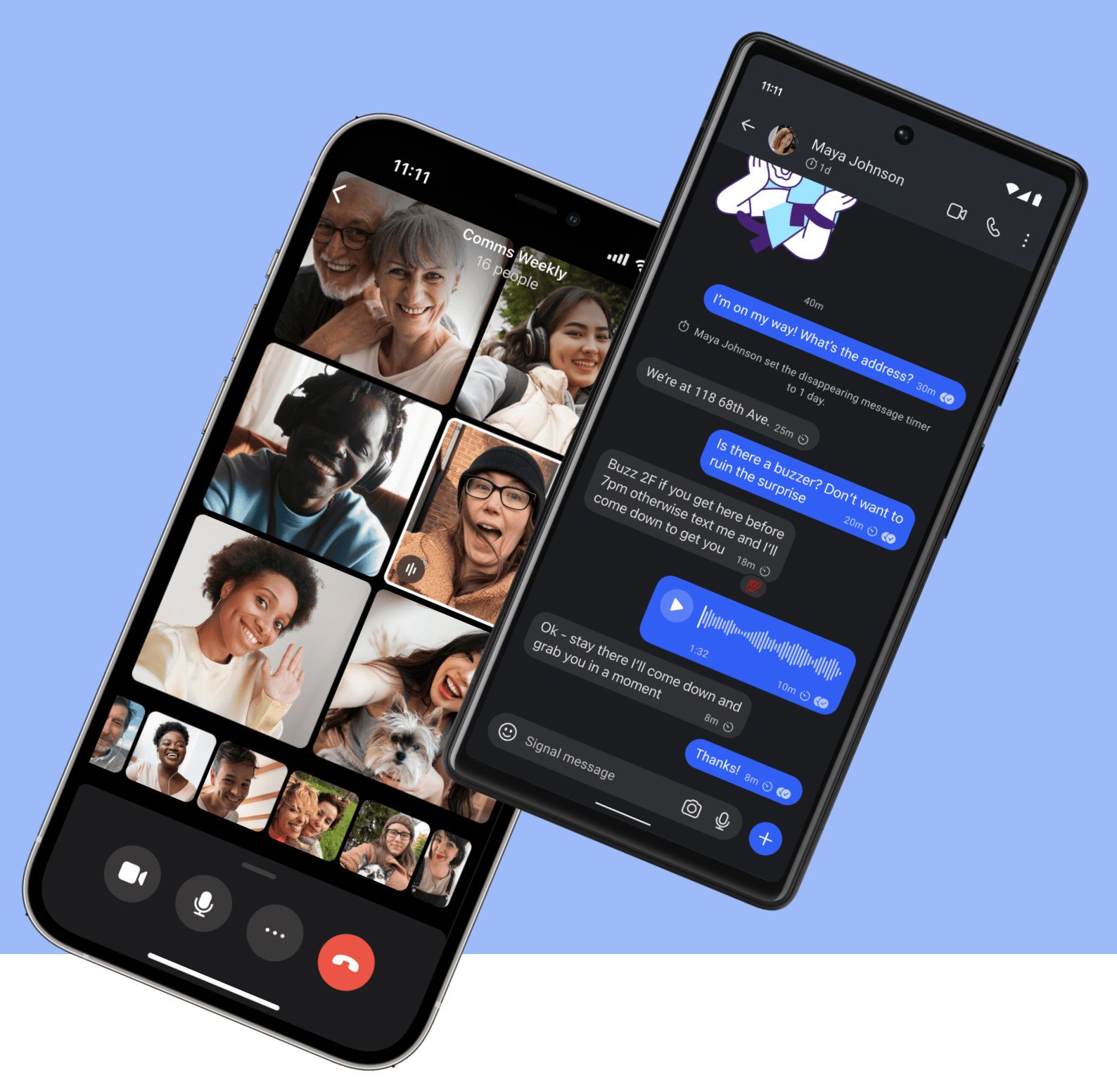Signal President Warns of Agentic AI Privacy Risks at SXSW 2025
Image Source: Signal
Meredith Whittaker, president of the Signal Technology Foundation, delivered a stark warning about the privacy implications of agentic artificial intelligence during her address at the SXSW (South by Southwest) 2025 Conference and Festivals on Friday, March 7, 2025. Whittaker, who oversees the widely respected Signal app—known for its robust end-to-end encryption—expressed deep skepticism about AI systems designed to autonomously perform tasks and make decisions without human oversight. Her remarks come amid growing enthusiasm from tech industry leaders who have rolled out AI agents, touting their potential to streamline daily activities.
[Read More: O2 Launches "AI Granny" Daisy to Combat Scammers by Wasting Their Time]
Defining Agentic AI and Its Promises
Agentic AI refers to advanced systems capable of independently executing multi-step processes on behalf of users. Promoted by some as a revolutionary tool, these AI agents are often likened to a “magic genie bot”, able to anticipate needs and complete tasks such as researching events, purchasing tickets, or coordinating plans with contacts—all without direct human intervention. Whittaker acknowledged the appeal of such technology, noting that it promises to offload cognitive effort, allowing users to delegate complex workflows to an intelligent system. However, she cautioned that this convenience comes at a significant cost to personal privacy and security.
[Read More: Agentic AI in 2025: The Rise of Autonomous AI Agents by OpenAI, Microsoft and Nvidia]
Privacy at Stake: The Data Dilemma
Whittaker outlined a hypothetical scenario to illustrate her concerns: an AI agent tasked with arranging a concert outing. To succeed, the system would require extensive access to a user’s digital life—browsing history to locate the event, payment details to secure tickets, calendar data to confirm availability, and even messaging apps like Signal to notify friends.
“It would need access to our browser, an ability to drive that. It would need our credit card information to pay for the tickets. It would need access to our calendar, everything we’re doing, everyone we’re meeting. It would need access to Signal to open and send that message to our friends”, she explained.
Such broad permissions, Whittaker argued, would effectively grant the AI root-level control over a user’s device, accessing sensitive data across multiple applications.
Compounding the issue, Whittaker highlighted that the computational power required for such tasks would likely push data processing to external cloud servers rather than keeping it on-device. This off-device transfer, she warned, introduces vulnerabilities, as data would need to be transmitted “in the clear”—unencrypted—due to current technological limitations. This process risks exposing private information, including messages intended to remain confidential within Signal’s encrypted ecosystem, to potential interception or misuse.
A Threat to Digital Boundaries
Whittaker’s critique extended beyond immediate privacy breaches to the broader implications for digital architecture. She cautioned that agentic AI could erode the separation between a device’s operating system (OS) and its application layer—a divide she likened to a “blood-brain barrier”. By integrating disparate services and their associated data pools, these systems threaten to undermine the compartmentalization that protects user information. “There’s a profound issue with security and privacy that is haunting this sort of hype around agents”, Whittaker stated, emphasizing that the consolidation of control could weaken the safeguards built into privacy-focused tools like Signal.
[Read More: Microsoft Launches Zero Day Quest: A $4M Hackathon for AI and Cloud Security]
Echoes of Concern from AI Pioneers
Whittaker’s apprehensions are not isolated. Yoshua Bengio, a renowned AI researcher and one of the field’s foundational figures, voiced parallel worries earlier this year. Speaking to Business Insider at the World Economic Forum in Davos in January 2025, Bengio warned that agentic AI could pave the way for catastrophic outcomes if paired with artificial general intelligence (AGI)—a theoretical milestone where machines match human reasoning capabilities. “All of the catastrophic scenarios with AGI or superintelligence happen if we have agents”, he said. Bengio urged the scientific community to prioritize safety research and technological safeguards to mitigate risks before such systems become uncontrollable.
[Read More: Deed Fraud and AI: How Scammers Use Technology to Steal Property Ownership Rights]
Balancing Innovation and Caution
The debate over agentic AI reflects a broader tension within the tech industry: the push for innovation versus the need to protect user rights. Proponents argue that autonomous agents could transform productivity, freeing individuals from mundane tasks and enabling more efficient workflows. Critics like Whittaker and Bengio, however, stress that without rigorous oversight and privacy-preserving frameworks, these systems could expose users to unprecedented levels of surveillance and data exploitation. Whittaker’s position, rooted in her leadership of Signal—a platform built on trust and security—underscores the stakes for privacy advocates in an era of rapid AI advancement.
[Read More: CanLII Takes Legal Action Against AI Startup Caseway for Alleged Content Misuse]
Source: Yahoo! News











